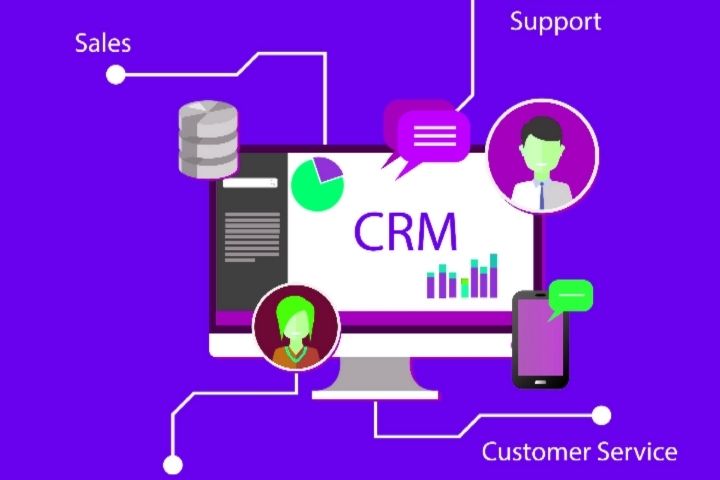A CRM (Customer Relationship Management) is a computer program that allows us to organize and manage all the parameters related to our customers and that gathers information on each individual sales process, from customer acquisition to satisfaction analysis.
Especially in the case of SMEs and freelancers, the computer systems of customer and sales management are the great forgotten or unknown. The vast majority of small entrepreneurs consider that a digital agenda (and even on paper) is more than enough to organize orders and keep a list of customers.
In other cases, although they claim to know this type of management tools, they argue that a CRM is only necessary for those large companies that have a client portfolio with thousands or hundreds of entries and high budgets. However, what they do not know is that these large companies also began as SMEs and that probably what led them to be large is a correct management of their sales, customers and marketing and customer service departments.
By linking this type of sales management software only to large companies, most small entrepreneurs assume the premise that these types of tools are expensive, however, with the development of CRM in the cloud and the possibility of integrating CRM and telephony , having all the advantages of a CRM is not only economical; In the long run, it can become the main sales engine for your company.
Table of Contents
Manage Intelligently With A CRM
That is what a CRM allows: to intelligently manage our clients, anticipate their needs to increase our sales and attract new buyers for our products and services.
Vertical Vision And Transversal Vision In The CRM
Starting from the concept of what a CRM is and in order to understand its full potential, now we have to visualize the analytical capacity that this tool offers us, understanding that it works in two directions: vertical and horizontal.
When we speak of vertical vision we are talking about that a CRM allows us to analyze the information of each client individually. For example: how the customer was captured, how were the negotiations, who closed the sale, what arguments worked to close the first sale, quantities, price, discounts, incidents (problems with delivery, product, etc.), deadline consumption for possible replacement, customer satisfaction monitoring, etc.
We can say that we have a history of our relationship with that client and that all this data will allow us to offer a personalized treatment to that client.
Now let’s imagine that we have the individual data of 50 clients stored in our CRM Software. Now is when we can analyze that data in a cross-sectional way and discover the best way to approach our sales strategy.
Also Read : Types Of Web Pages That Exist
Using another example; You would be surprised by the number of sectors in which a discount is not a good sales strategy and, if we only analyze our clients as isolated cases, we probably will not realize it, but if we are able to analyze the mass of clients as a whole, We may discover that, for example, of the last 50 sales negotiations in which we have offered a discount, 37 have failed and yet 45 of the last in which we have offered free shipping or free assembly have worked.
With a CRM we have information in real time such as what was bought from us, how the payment was made, if there was any type of incident in the process, with what person or department we deal with in each case, notes, archive of the emails that are crossed in the process, etc.
And these are just a few examples. A CRM can be customized and configured so that it offers us any data that we consider relevant to analyze our sales processes so that we have cross data to determine correct strategies and define a personalized treatment. In our case, in addition, the data of our CRM is integrated with the telephony so that when we receive a call from a client, our CRM offers us all this data in real time so that the operators of our customer service department or call sales center can offer a better service focused on capturing new sales opportunities or loyalty to our customers.
In a globalized world in which not only price is the determining variable in purchasing decisions, customer treatment is one of the most important elements to make a difference with the competition.
Also Read : Role Of Social Media In An Inbound Marketing Strategy
